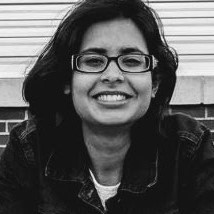MakerGhat
- India
MakerGhat's mission is to develop a sense of agency and confidence among underserved youth to address local problems in their communities. We do this through the practice of making that is focused on value creation. Our goal is to create the next generation of leaders and entrepreneurs that come from diverse communities and are equipped to address issues in their own communities. Through our programs, we hope to break the class/caste/gender boundaries that determine who has access to economic, material, human, and knowledge resources.
We are currently focused on expanding our programs across India and developing open-source materials that enable any individual, school, or community to engage in hands-on making. The next two years are critical to our growth. Over 2021-2022 we are collective extensive data on our programs to determine efficacy and refine curriculum and program design, before growing rapidly over 2022-2023.
The funds through the Elevate Prize will go a long-way towards capacity-building for the long term, helping expand our team and programs.
The founders of MakerGhat have a combined 6 years experience working with communities and community leaders in slums in India.
Azra Ismail is a Ph.D. candidate at the School of Interactive Computing at Georgia Tech, where she studies, designs, and builds data infrastructures for community health. She has published in multiple human-computer interaction venues on the intersections between gender, health, and data in slum communities. She completed her undergraduate in computer engineering from Georgia Tech where she spent much of her time volunteering and participating in makerspaces and hackathons. She brings her deep understanding of makerspaces and community development to MakerGhat.
Aditya Vishwanath is a Ph.D. candidate and Knight-Hennessy scholar at Stanford University. He studies education and technology design at the Graduate School of Education with a focus on developing human-centered learning spaces and curriculums with technology. He completed his undergraduate degree in computer science at Georgia Tech, where he worked on educational applications of virtual reality and computer vision. He brings his experience in education and emerging technologies to MakerGhat.
Unemployment in India is at an all-time high; 36% among educated urban youth and more among underserved groups. India’s rote-learning public education system has especially failed to support the needs of students from underserved backgrounds. Educational materials rarely connect with students’ everyday contexts, and rarely focus on seeing students as producers of value. There is a need for hands-on and community-centric learning to equip underserved youth with critical thinking, problem-solving skills, and confidence so that they can become active agents of change for their own communities.
MakerGhat solves the problem of lack of safe and open spaces within schools and communities and communities that support the development of these skills among underserved youth. We provide students with access to resources and learning materials for project-based learning, with a focus on helping them apply skills learned to their everyday contexts. MakerGhat is thus focused on addressing two major gaps:
1. transforming underserved youth into local leaders and entrepreneurs
2. providing community members the means and support to find solutions to local needs.
We believe that we can effect change by offering three inputs: (1) a safe physical space to experiment with a high room for failure, (2) tools and resources to develop ideas, and (3) local role models and mentors who guide learning.
This leads to the following three outcomes: confidence, critical thinking, and independence of thought. They further lead to long term outcomes of gainful employment and creation of local leaders and entrepreneurs. Our spaces are operated by people from the community.
As a practice, hands-on making is specifically focused on product realization and knowledge production, which we are trying to nurture. The key features and goals of our making-driven programs are:
To spark a deep curiosity and interest in one or more domains.
To inculcate a culture of critical and frequent questioning.
To hone problem-solving skills.
To engage in open exploration and playful experiences that are engaging and meaningful to students.
To instill a growth-mindset, building confidence in their skills, willingness to take risks, and ability to self-learn. This involves celebrating and learning from failure.
To foster collaboration over competition.
To develop linkages across subjects, enabling students to engage in interdisciplinary thinking and visualizing the broader picture.
Results from our early programs in Mumbai with 500 students over 1 hour/week for 24 weeks showed: increase in confidence and risk-taking, increase in the belief that they can tackle an unseen or difficult problem, increase in appreciation for classmates’ skills, and interest in pursuing entrepreneurship.
We are conducting three key programs between 2021-2022 during which we will conduct rigorous monitoring and evaluation before targeting scale.
SCHOOL-LEVEL
2021-2022 target: 350-450 schools,
70,000 students
2022-2023 target: 21000 schools,
2,700,000 students
Partners: NITI Aayog’s Atal Innovation Mission, Global Alliance For Mass Entrepreneurship (GAME), Andhra Pradesh Government (along with other non-profits)
COLLEGE-LEVEL
2021-2022 target: 10 university spaces, 4,000 students
2022-2023 target: 50 university spaces,
20,000 students
Partners: Universities (Tentative: IIT Bombay, IIT Hyderabad, IIT Gandhinagar, IIT Jammu, SMIT, Nirma University, Pravara Rural Education Society, VJTI, BITS Pilani)
COMMUNITY-LEVEL
2021-2022 target: 5 village spaces,
150 students
2022-2023 target: 500 village spaces,
15,000 students
Partners: Agastya Foundation
- Children & Adolescents
- Poor
- Low-Income
- Middle-Income
- 4. Quality Education
- 8. Decent Work and Economic Growth
- 10. Reduced Inequality
- Workforce Development

Cofounder at MakerGhat, and Assistant Professor at Emory University